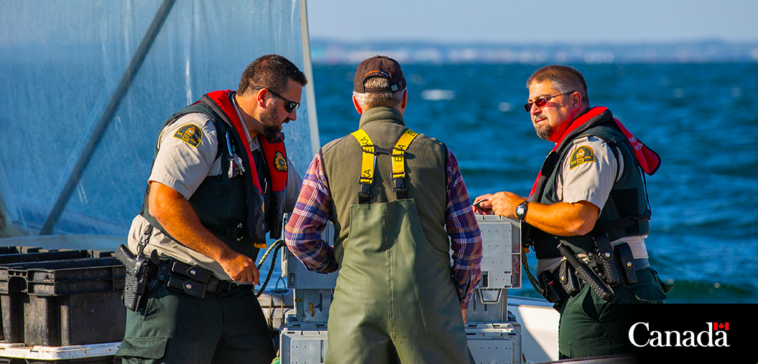When three-time convicted Prince Rupert poacher Adrian Slavko Kern was handed an eight-month fishing ban and $49,704.68 in fines for a fourth offence last October, Fisheries and Oceans Canada enforcement officer Mark Beisel felt good.
Yes, Kern had $15,000 in outstanding fines and wouldn’t have to pay the new fines until 2028, if ever, but the fishing ban sent a strong message: if you defy the law, you can lose your livelihood.
“Any time a large investigation, with all the time and effort involved, comes to completion, it’s nice to see,”
Mark Beisel, DFO enforcement officer
The ruling was noted in a DFO release earlier this month.
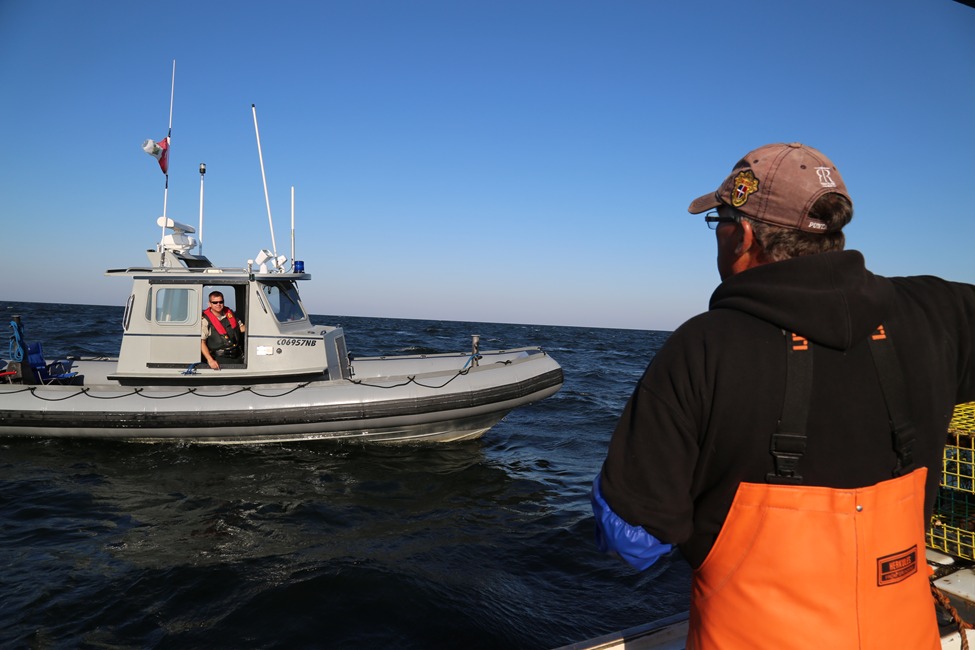
Source: Fisheries and Oceans Canada on Facebook.
“Any time a large investigation, with all the time and effort involved, comes to completion, it’s nice to see,” says Beisel, field supervisor for the Bella Coola detachment. A 10-year DFO veteran who grew up in Nanaimo and began his career in the Coast Guard, he oversees enforcement from Cape Caution to Banks Island.
The Kern case, based on the illegal catch of 154 halibut and 467 sablefish in Chatham Sound near Prince Rupert, highlighted all the human, technical, and legal complexities of modern fisheries enforcement.
Kern’s poaching came to light when his trip records were reviewed by Archipelago Marine Group, Beisel told West Coast Now, a third-party contractor used to monitor and analyze electronic monitoring information gathered on every trip.

This digital system, which tracks boat movements, where catches are made, and what is caught, turned up discrepancies that required DFO review. The file went to a fisheries officer for audit and investigation.
But data is only part of the story if a violation is suspected.
“The issue comes down to who the skipper is,” says Beisel. “Even if it’s a violation by the crew, if it’s a harvesting issue, it comes down to the skipper.”
“I accept he did not set out to break the law. On the other hand, Mr. Kern did not research and educate himself as to what areas were closed. He did not take the steps required of an experienced fisher, which he was and is.”
Judge Patterson
If a violation is suspected, fisheries officers may require old-school investigative tools like showing up in person to establish who was actually running the boat. Beisel recounts one incident when a skipper had died, and his son took over the boat but did not update the software. For four years, the catch was attributed to a dead man.
During his September 2018 fishing trip on Mandala No. 1, Kern set his gear 47 times north of Dundas Island in Chatham Sound, veering between open fishing areas and closed ones. The violations occurred on just five sets, but the illegal halibut catch alone was worth $24,707. (The court did not estimate the value of the sablefish.)
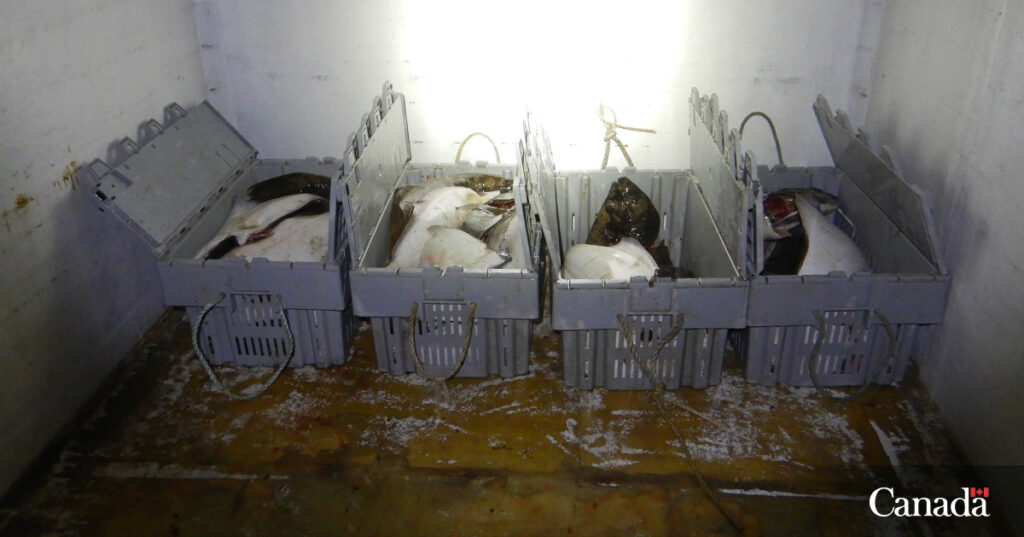
Kern was leasing the boat and the quota, paying vessel and quota holders for the right to fish. He had been charged just months earlier for another violation that would ultimately result in a 2022 conviction and a $15,000 fine, also handed down by Judge Patterson.
Kern’s record includes a 2003 conviction for four violations and a 2007 conviction for other violations near Ucluelet that netted $12,500 in fines.
The second 2018 violation triggered a demand from the federal prosecutors for a fishing ban on Kern, a sanction rarely imposed. (A lifetime fishing ban was imposed in 2021 on notorious Galiano Island poacher Scott Steer, whose final offence involved stealing crab near the SeaBus route in Burrard Inlet.)
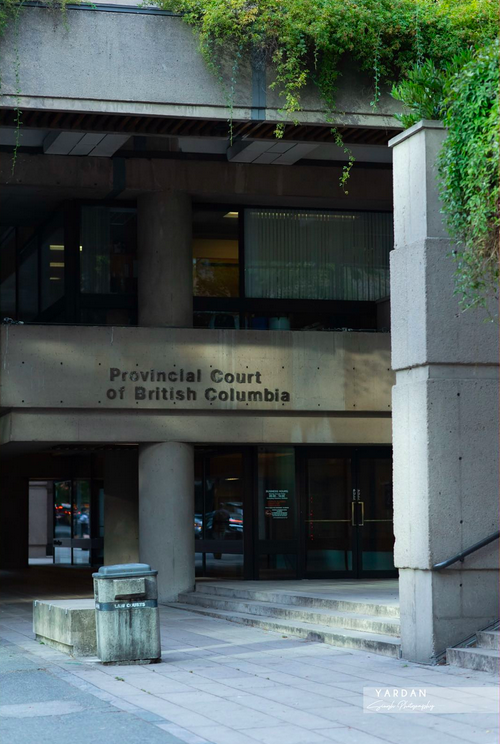
When Kern finally appeared in court Oct. 31, 2022, to plead guilty, lawyers for both sides had agreed on the fines but were split on the fishing ban.
Provincial court Judge Patterson ruled a ban was required for deterrence. “I accept he did not set out to break the law,” he stated, “On the other hand, Mr. Kern did not research and educate himself as to what areas were closed. He did not take the steps required of an experienced fisher, which he was and is.”
At the same time, the judge’s decision to allow six years for Kern to pay the fine acknowledged the harsh reality that a fisherman who was “couch-surfing” and “currently not working due to an injury” won’t have the money handy.
“This is not about avoiding the payment of the fines – just the opposite,” said Judge David Patterson. “It is about allowing Mr. Kern the opportunity to get back on the ocean and make the money he needs to make to pay these fines once his prohibition is up.”
If Kern still can’t pay in 2028, he can apply for a further extension, Patterson ruled. “Hopefully, you start earning money to support your family, and, of course, support yourself,” the judge said.
“Guardians have an absolute wealth of knowledge. They have the passion and the ability to be out on the water all the time.”
Mark Beisel
Although electronic monitoring was critical to Kern’s conviction, DFO fisheries officers “try to be on the water as much as possible,” Beisel says. “It makes it a lot easier when we can board the boat, but criminals are smart. Our goal is often to find those prolific offenders and focus on them. We need to use a lot of our investigative skills to identify repeat offenders.”
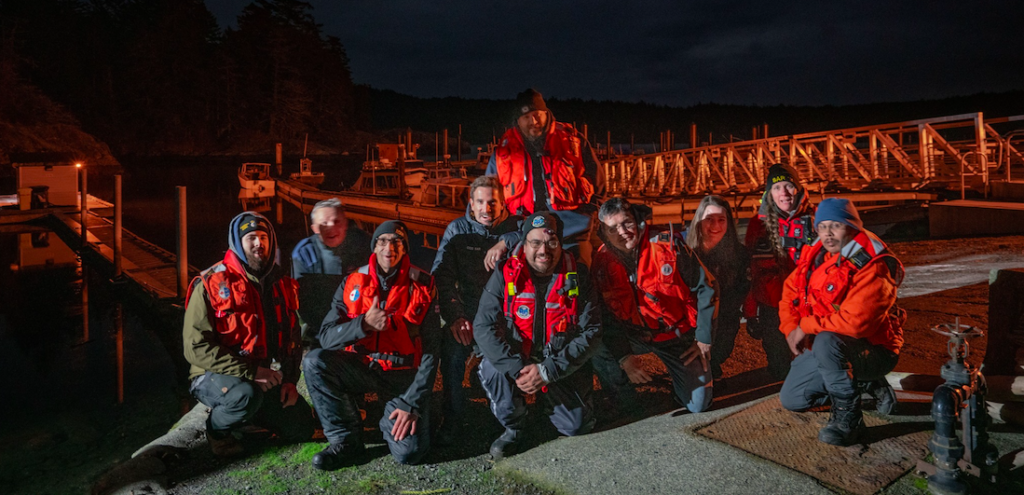
Photo Credit: Jordan Wilson.Source: Canadian Coast Guard on Facebook.
First Nations’ Guardian programs have become a new and important tool in that battle, says Beisel, who has fostered close ties with Nuxalk and Wuikinuxv First Nations in his own area.
“Guardians have an absolute wealth of knowledge,” he says. “They have the passion and the ability to be out on the water all the time.”
“I can’t overstate how important they are to their communities, their traditional territories and to us. They bring us files and observations that provide a wealth of information,” he says.





